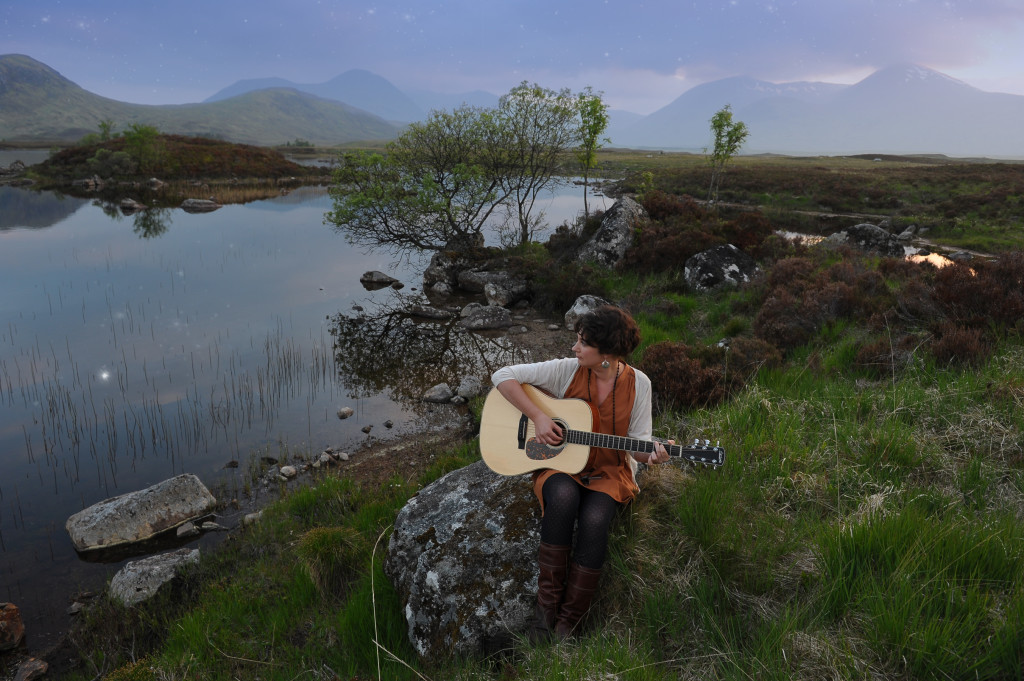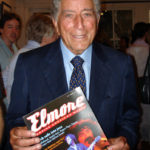By Iain Patience
If you’ve yet to come across the term/genre/type of music being christened “Gaelic Americana,” and have little idea where it comes from, you’re no doubt not alone. But consider this simple truth: modern Americana, with its roots and branches firmly secured in the Appalachians, and the US bluegrass tradition largely owes its creation and development to those Irish and Scottish émigré pioneers who moved to the region – the Virginias, North Carolina, Kentucky and Tennessee – over a century ago. With them they took their optimism, music and native language, Gaelic – Irish and Scottish versions being different beasts with strong native racines.
Fast-forward to a few years ago when a young, equally optimistic US-born musical pioneer, Kyle Carey, turned up on the scene with an exciting take on the tradition and a fundamental grasp of Scottish Gaelic which she’d learned off her own bat, following spells in Canada’s Gaelic-speaking provinces and the whisky-soaked Scottish islands.
Carey, who is now working on her third album, released a debut offering, Monongah in 2011, a pleasant release that garnered significant praise but nevertheless mostly slipped below the music radar. A few years later, in 2014, she produced a sophomore release, North Star, an album that incorporates Gaelic language and influences into the mix to great effect. This is an album that is genuinely, in my view, little short of sublime, a simply wonderful work rich in melodic master-touches and delightful lyrics – even if you don’t understand the language at times. The feel, the ambiance, the beauty carries through, and Carey carries it off with confidence, poise and power.
Carey herself is modest about the interest generated by the largely self-coined Gaelic-Americana description being applied to her and her brand of music: “I lived in remote parts of Alaska as a young kid, and they have their own language there which sounds a lot like Gaelic. Then I visited Ireland when a student (English major, music minor) and heard the language there. When I graduated from college, I received a Fulbright Scholarship to catch more Gaelic. I went to Cape Breton in Canada on the fellowship, learned some Gaelic and then moved to the Isle of Skye in the Scottish Hebrides to study Gaelic. I wrote most of the songs on North Star during this time.”
Carey recalls her first tour following the release of the first album, Monongah, as being: “…straight into the frying pan. I didn’t even know what a monitor was!” Now, however, she is generally relaxed and feels on top of things on the road. “I do get tired at times, but that’s part of being on tour. And I can get nervous if family or old friends are in the audience. Otherwise I can play big stages without a thought then I might get twitched just before a smaller show. I guess it’s just one of those things,” she laughs.
Carey lists her influences to include: “…almost anything by Gillian Welch. I absolutely love her music, her lyrics too; Nanci Griffith (whom she herself has been often compared with); Iris De Ment; Mary Black; Scottish Gaelic singer Kathleen MacInnes and Julie Fowlis.” All ladies with strong backgrounds and enviable abilities in songwriting, singing and playing across the two cultural divides of modern US Americana and traditional Celtic music. This is particularly fitting given Carey’s own similar musical background, experience and strength.
Writing comes from the usual sources, she adds: “I play guitar and write on guitar. Ideas can come from a poem, another song, a book, a conversation, life on the road, almost anything might trigger an initial idea.”
Carey is already working on her third album The Art of Forgetting, due for release in 2017. Currently based in Brooklyn, she is excited by the prospect of remaining on the road, touring and promoting her music to an ever-growing range of fans worldwide.
One thing appears pretty certain, Gaelic Americana is here to stay, and the innovative, elegantly expressive Kyle Carey is likely to remain the driving-force behind its spreading popularity.
Follow her online at www.kyleannecarey.com








Be the first to comment!